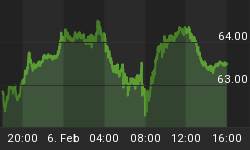One of the biggest debates within the investment world is whether markets are truly efficient. The business school explanation of the Efficient Market Hypothesis (EMH) states that a given stock's price at any given time take into account all data, as well as opinions and interpretations of that data, relevant to a that stock.
While this argument may seem trivial to some, it does have far-reaching implications for investors and how they structure or manage their portfolios.
Investors who believe that markets truly are efficient tend to believe in passively portfolio management, as they find it statistically impossible for active money managers to beat the market over the long run. So, they purchase of a diverse set of securities across a range of asset classes. This portfolio is rarely altered, but may occasionally be rebalanced.
Conversely, there are many people believe that markets are inefficient for one reason or another. As an example, our own philosophy is that markets are inefficient because stocks prices only consider what has already happened, as well as current expectations. However, these expectations are likely to change as economic circumstances change.
Those of us who deny EMH tend to shy away from diversification, which Warren Buffett once characterized as "a hedge against ignorance," in favor of actively managed portfolios of one type or another.
Passive investors and EMH subscribers frequently try to invalidate active money management theories using statistics. They contend that the average money manager is no better that picking investments than a monkey throwing darts at a dartboard.
Not that anyone asked us, but of course the average money manager can't beat the market. After all, the market is the average, which would include both money managers who lost money, as well as those who significantly outperformed the market. It's the same as saying that the average stock won't beat the market's average. Of course, there are always outliers. Some can beat the market; others will go broke.
For better understanding, consider that the average temperature in Washington, DC is between 48 and 66 degrees Fahrenheit. At those temperatures people would be pretty comfortable in a sweater. Of course, that doesn't mean that if you were planning a trip to our nation's capital, you would pack for average temperatures. You'd pack according to the season.
Similarly, while the average money manager won't beat the market, it is possible to find those who dedicate their time and effort to studying the markets and can routinely outperform their peers as a result.
However, the only way to accomplish that goal is by looking forward and trying developing forecasts.
Unfortunately, the vast majority of the investing public has a faulty method of selecting investments. Most spend their time studying history. They look at old data, historical financial reports, charts, etc. The oldest trick in finance is to show a client a mountain chart and ask whether they would've liked to have been along for the ride.
The problem with looking at history is that is investors can't make any money from what has already happened. The only way to make money investing is to develop a reasonable picture of how the future will unfold, and take positions in securities that will benefit as a result.
To accomplish this, investors don't need a crystal ball, but they at least need to be forward-thinking. Obviously no one knows exactly how the future will unfold. Still, most investors are driving along and steering by what they see in their rear view mirror. This method works OK, until the road turns. It's always better to look ahead, even if the view is hazy.















